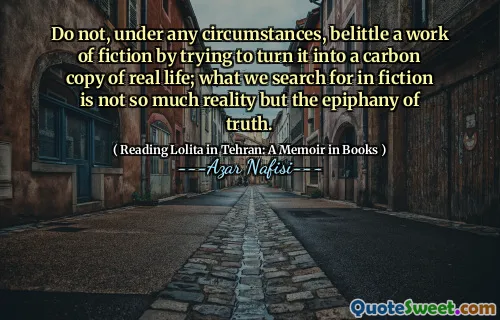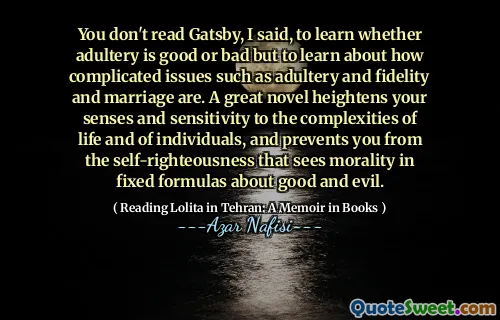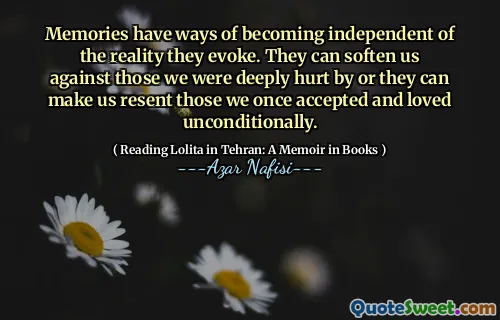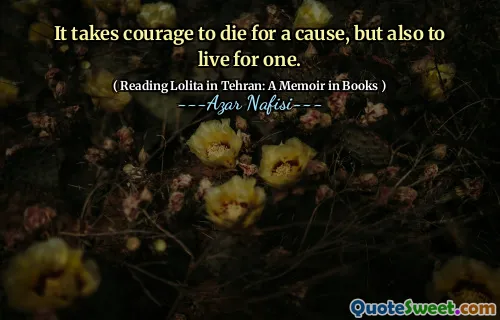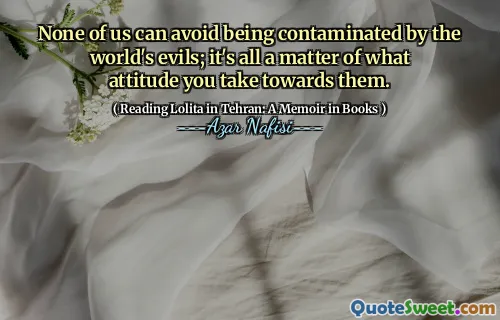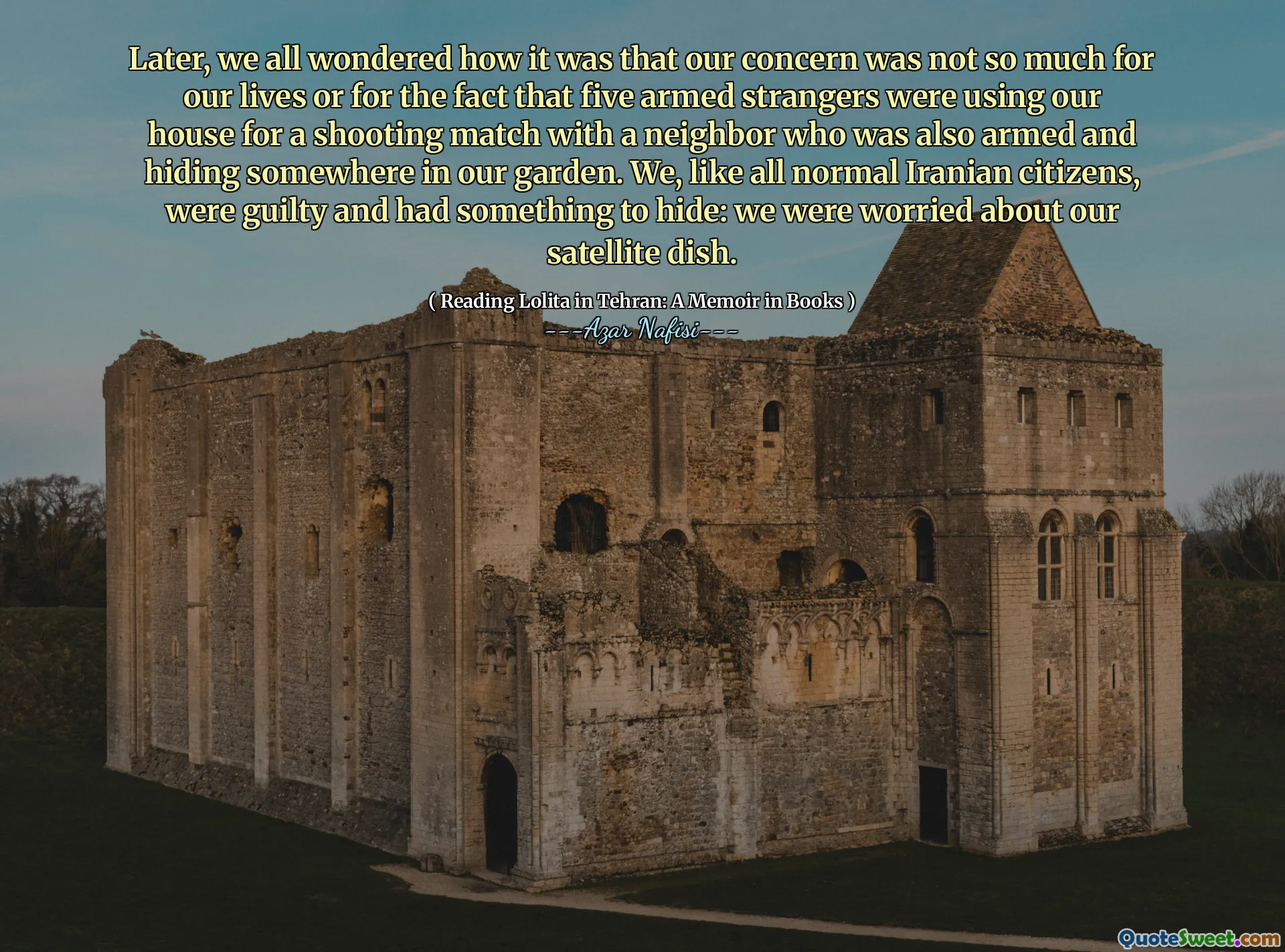
Later, we all wondered how it was that our concern was not so much for our lives or for the fact that five armed strangers were using our house for a shooting match with a neighbor who was also armed and hiding somewhere in our garden. We, like all normal Iranian citizens, were guilty and had something to hide: we were worried about our satellite dish.
📖 Azar Nafisi
In the memoir "Reading Lolita in Tehran," Azar Nafisi reflects on a startling moment of fear and uncertainty. During a tense situation where armed strangers were embroiled in a violent confrontation outside her home, she notes how the primary concern of her group was not their immediate danger but the potential repercussions of their satellite dish. This highlights a paradox where their worries were shaped by societal pressures, revealing a deep-seated sense of guilt prevalent among ordinary citizens in Iran.
Nafisi's observation underscores a poignant truth about living in a repressive regime, where the trivial, such as a satellite dish, can overshadow grave threats to personal safety. It illustrates how individuals internalize their environment's fears, prioritizing self-preservation in a way that seems almost absurd. Their legitimate fears about the consequences of defying authority via modern technology reflect on the broader theme of individual vs. state in oppressive societies, capturing the complexity of human concerns amidst chaos.

